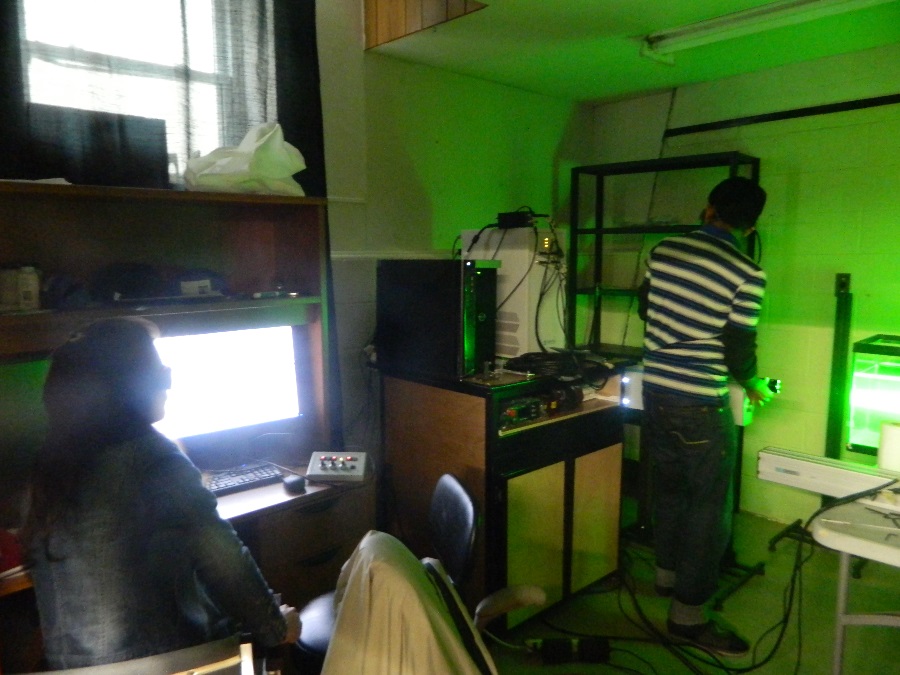
The tri-focus orientation of BBML - experimental, theoretical and numerical modeling - will provide an ideal environment for dealing with various problems of life sciences and engineering from different perspectives. The post-processing techniques (PIV, PTV and remote sensing) will be used to deal with following main themes in strongly involving numerical simulations and databases analysis.
- Ecological bursts and natural patterns: This program of research will cope with microorganism dynamics in fluid and porous media, with applications mainly to Harmful Algal Blooms (HABs) or cyanobacteria (toxic blue-green algae). Focusing on the conception of a fully integrated modelling framework and convivial tools for the coupling interactions of algal growth parameters, the research program will be developed through three cohesive topics: 1) Algae dynamics in large scale of the nature; 2) Algae behaviors at laboratory scales; 3) Applications of algae studies within the complex water monitoring and distribution system. These are based on reciprocal approaches to develop both the assimilation datasets through experimental/field measurements and mathematical models, and then use them to validate each other.
- Sustainable irrigation and fluid flow patterns in agriculture: Irrigation improvements are necessary to promote society, the economy, and the environment (ROMA declaration on World Food security, 2000). This theme of research will therefore deal with optimal irrigation and irrigating efficiency which require a panorama of combined factors such as soil properties, field topography, crop need, water flow characteristics and environmental factors (wind, weather, etc.). Mathematical and physical modeling for water flow will be included in irrigation studies, requiring new data for model validation and adaptation of management techniques to specific irrigation problems. Water flow modelling could be a powerful tool for such studies. A significant improvement for the precision of water irrigation and water saving would be possible by closely managing the irrigation devices for water distribution and uniformity under different weather conditions. The applications of new designs based on mechanical and mathematical modeling for irrigation systems that adapt to environmental conditions would be indispensable.
- Pattern recognition: This research aims to provide the reasonable answer for all possible natural inputs and to perform matching of them, taking into account their statistical variation. This would significantly contribute to many fields including thermal and water stressed areas in agriculture and human disease diagnostics via imaging techniques such as thermography and mammography.
- Modeling in production: management, operation and optimization: In collaboration with the Department of Industrial Engineering, Dalhousie University, this research will focus on the ergonomic factors and human-centered analysis approach.
- Coastal dynamics and coastal ecosystem evolution: Developed with the University of Moncton and the University of Quebec, this research will focus on vulnerable coastal areas of Quebec and New Brunswick.
